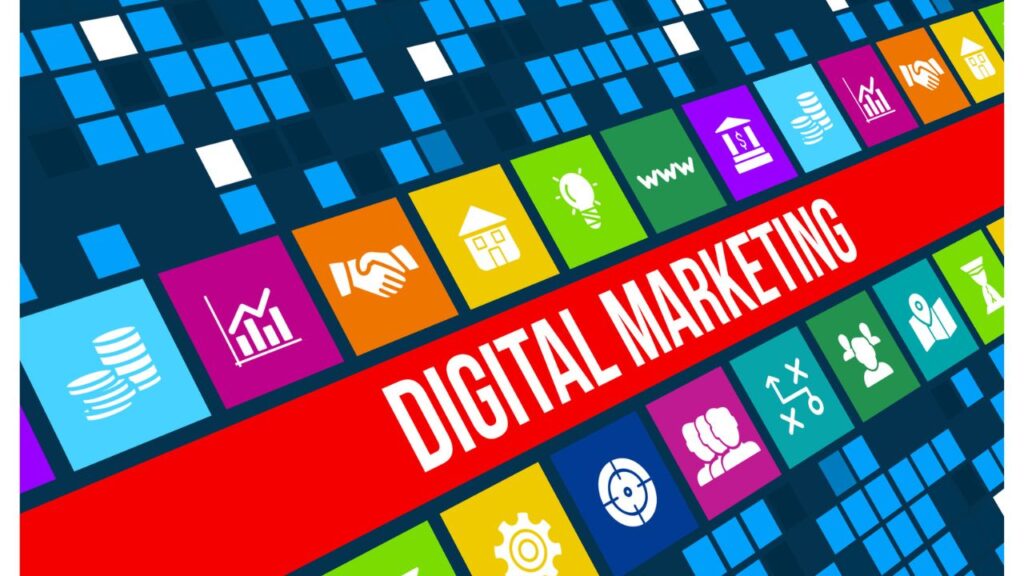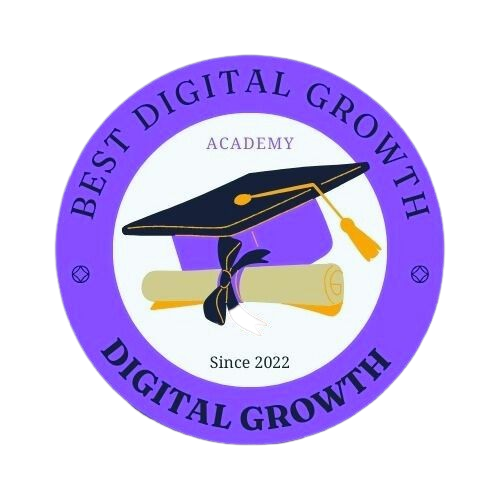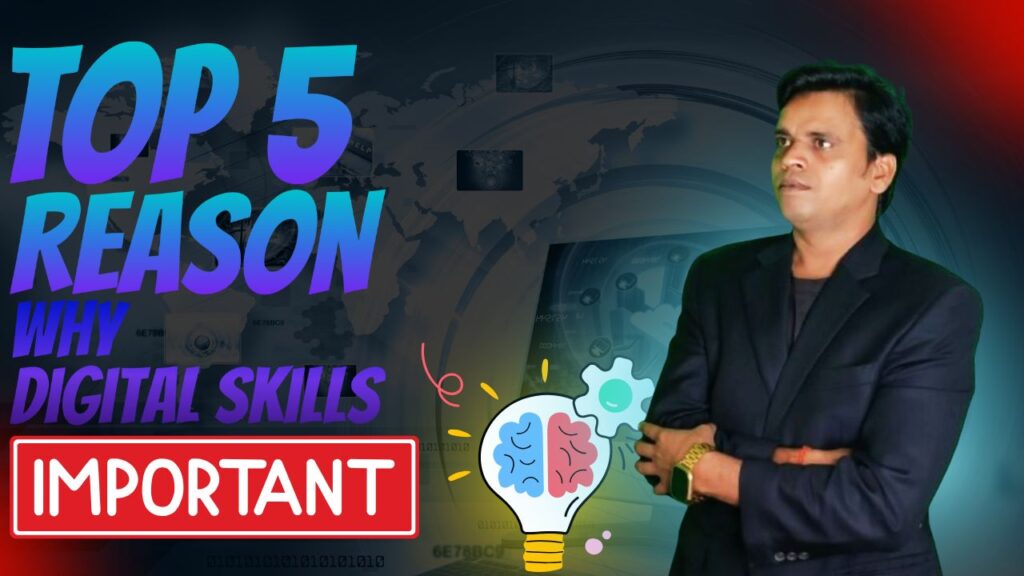In the past, the term “degree” was synonymous with success. A framed certificate from a university represented knowledge, credibility, and job security. But times have changed. In 2025, we are witnessing a massive shift in how the world values education. Employers, entrepreneurs, and even educational institutions themselves are increasingly recognizing something more powerful than a traditional degree — digital skills.
With the Fourth Industrial Revolution in full swing, digital fluency is now the core currency in the job market. From startups to Fortune 500 companies, the demand for professionals who can navigate digital platforms, leverage analytics, automate workflows, and engage audiences online is skyrocketing. In this blog, we’ll explore the top 5 reasons why digital skills are the real degree in 2025, and why you should start building them right now.

1. Digital Skills Offer Immediate ROI in the Job Market
The Fast-Track to Employment and Earnings
Unlike traditional degrees that take 3 to 5 years to complete, digital skills can be learned in a matter of weeks or months — often for free or at a low cost. In 2025, platforms like LinkedIn, Upwork, and Fiverr are filled with professionals making six-figure incomes without ever attending a formal university. Why? Because they offer something highly valuable: practical digital expertise.
For example:
-
A self-taught SEO expert can land global freelance clients within weeks.
-
A content marketer or social media manager with a strong portfolio can get hired remotely by international brands.
-
A coder with solid GitHub projects often receives more attention than someone with just a degree in computer science.
Employers Are Shifting Focus
Companies today don’t just care about where you studied; they care about what you can do. Digital skills demonstrate real-world competency, and that’s the language today’s hiring managers understand best. They want people who can optimize campaigns, design websites, analyze customer data, or automate repetitive tasks using tools like Zapier or ChatGPT.
2. Digital Skills Empower You to Be Your Own Boss
The Rise of the Solopreneur
2025 is the era of the digital entrepreneur. Thousands of individuals are building online businesses with nothing more than a laptop and Wi-Fi. Whether it’s dropshipping, affiliate marketing, freelancing, course creation, or YouTube content, digital skills allow people to generate income independently.
Why is this powerful?
-
You don’t need permission from anyone to start.
-
You control your income potential.
-
You learn through real-world application, not theory.
The Creator Economy Is Booming
Platforms like Substack, TikTok, YouTube, and Instagram are fueling the growth of the creator economy. Creators who understand digital marketing, storytelling, audience building, and analytics are building brands worth millions.
Traditional education rarely teaches these skills. That’s why creators and entrepreneurs are turning to digital bootcamps, YouTube tutorials, and online certifications — the new-age classrooms.
3. Digital Skills Are Future-Proof in a Changing Economy
Automation and AI Are Replacing Routine Jobs
Many traditional jobs are being disrupted by automation, AI, and machine learning. Clerical roles, basic customer support, and even some areas of finance are being automated. However, digital roles are growing, not shrinking.
Jobs in:
-
Data analysis
-
UX/UI design
-
Growth marketing
-
Cybersecurity
-
Cloud computing
-
Blockchain development
…are not just surviving, they’re thriving.
Adaptability is the New Security
Digital skills teach you how to adapt quickly. The tools may change (e.g., Facebook Ads becomes Meta Ads, or ChatGPT evolves), but if you understand the core mechanics — like funnels, targeting, engagement, storytelling, and automation — you can adapt faster than someone with only theoretical knowledge.
Being digitally literate in 2025 means you’re equipped to handle the jobs of tomorrow, even if they don’t exist yet.
4. Digital Skills Are Borderless and Global
Work from Anywhere, with Anyone
The traditional degree often limits you to local job markets. But digital skills open up the world.
As a digital freelancer or remote worker:
-
You can work with clients in the U.S. while living in India.
-
You can earn in dollars or euros, even if your living costs are local.
-
You can build an audience on YouTube or TikTok and monetize globally.
Remote Work is the Norm
Since the COVID-19 pandemic, remote work has become normalized — and in 2025, it’s not going away. Companies now care less about your location and more about your output. If you can drive traffic, manage social channels, or write high-converting copy, you’ll always be in demand, no matter where you live.
The best part? You can travel, live your dream lifestyle, and still be growing professionally. That kind of freedom was unimaginable with only a traditional degree.

5. Digital Skills Encourage Continuous Learning and Growth
You Never Stop Learning — and That’s a Good Thing
Traditional degrees are often static. You study once, then apply that knowledge for years. But in today’s fast-paced world, the half-life of knowledge is short. What you learned five years ago may already be outdated.
Digital skills, on the other hand, promote ongoing growth. Whether it’s staying updated with Google’s latest algorithm changes, testing new ad creatives on Instagram, or exploring the latest AI tools, digital professionals are always learning.
This mindset creates lifelong learners, which is a superpower in the modern economy.
Access to Resources is Unlimited
From YouTube to Coursera, Udemy to LinkedIn Learning — the digital education ecosystem is massive. With just a smartphone, anyone can access:
-
World-class training
-
Expert mentorship
-
Real-time tutorials
-
Live webinars
-
Case studies and toolkits
This democratization of education has flipped the power structure. Now, knowledge isn’t locked in ivory towers — it’s open, accessible, and evolving.
Bonus Insight: Even Universities Are Teaching Digital Skills Now
Ironically, even the traditional education system is recognizing the power of digital. Top universities around the world are now offering digital marketing, AI, and coding bootcamps. Some are even dropping degree requirements for admission to these short-term programs.
This shows one thing: digital skills have become too powerful to ignore, even by the very institutions they threaten to replace.

Real-World Success Stories
Let’s highlight a few examples of people thriving without traditional degrees, thanks to digital skills:
-
Alex Hormozi built a multi-million-dollar empire by leveraging sales funnels and content marketing, and teaches others to do the same online.
-
Ali Abdaal, a doctor-turned-YouTuber, makes over $1 million a year by sharing productivity content — thanks to video editing, SEO, and personal branding skills.
-
Iman Gadzhi, a high school dropout, now runs a successful digital marketing agency and online education business.
These aren’t outliers. They are proof that in 2025, digital fluency is the real degree.
Conclusion:
In 2025, success doesn’t hinge on which university you attended. It hinges on what you can do, how well you can adapt, and how fast you can learn. Digital skills are the true markers of competence, creativity, and capability in today’s world.
They’re:
-
Fast to learn
-
Globally relevant
-
Constantly evolving
-
Highly monetizable
-
Freely accessible
Whether you’re a student, a working professional, or someone restarting your career — investing in digital skills could be the smartest move you make this year.
So, stop waiting for permission. You don’t need a paper degree to build a digital future.
(Click here) Read this article to learn 10 digital skills for career growth.
Final Thought:
🎯 In 2025, the question isn’t “What’s your degree?” — it’s “What can you do online?”

